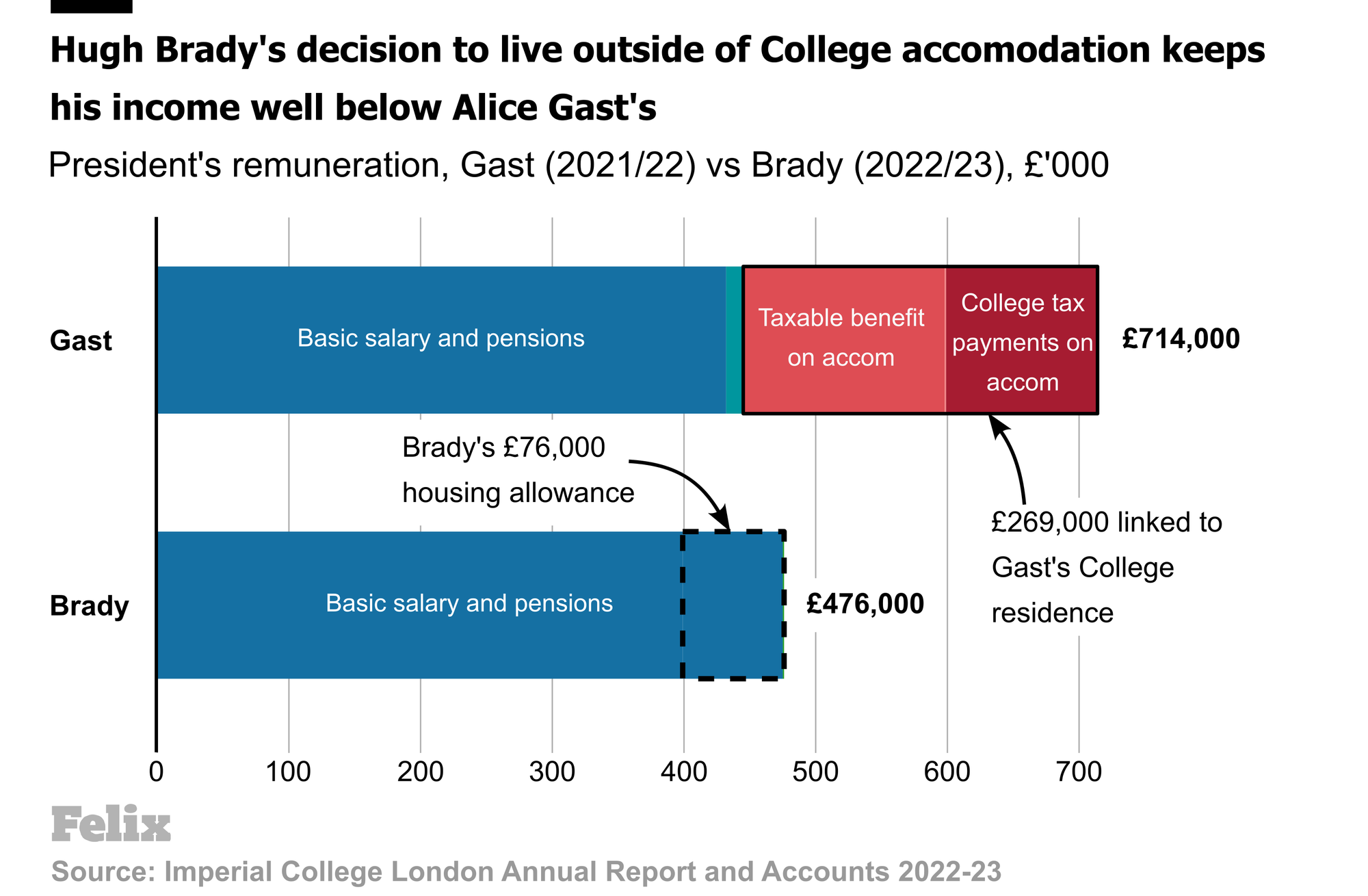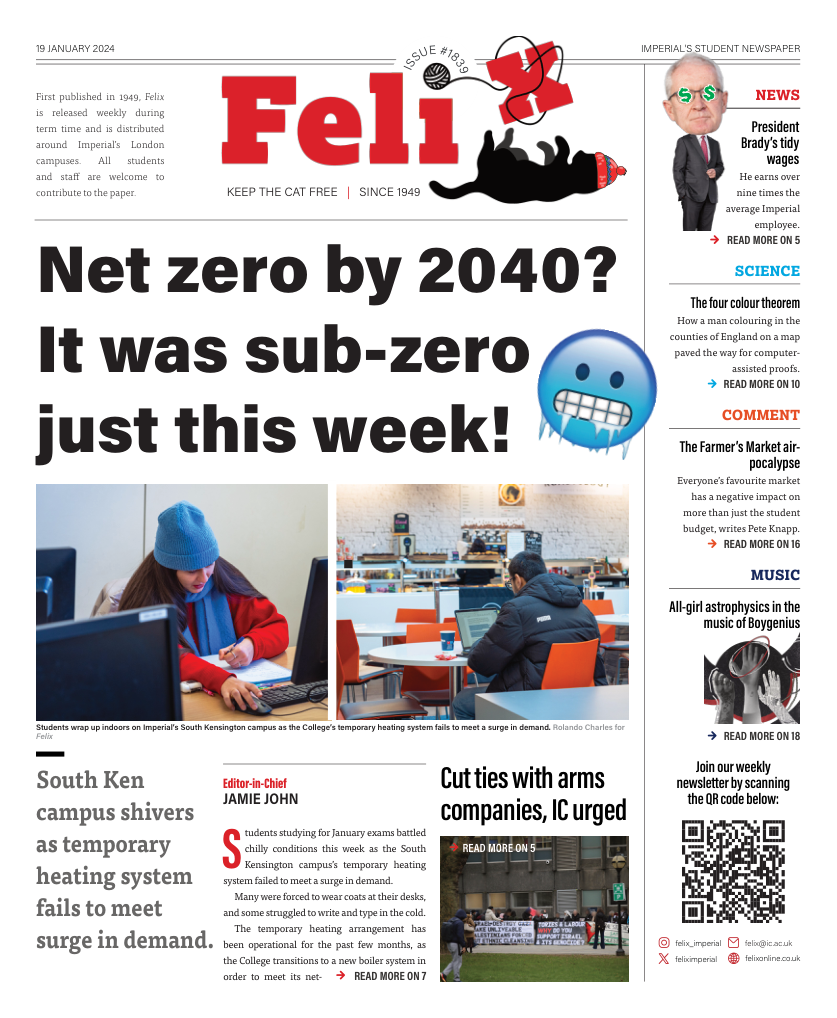President Hugh Brady earns over 9x the average Imperial employee
Hugh Brady’s salary, tuition fee income increases, and more in Imperial’s annual report.

New Imperial President Hugh Brady earns markedly less than his predecessor Alice Gast – but still over nine times as much as the median employee, according to Imperial’s latest annual report. The report also reveals that a rise in the proportion of students paying international fees drove an 8.8% increase in tuition fee income.
Brady saw his total remuneration rise to £476,000 last academic year, an increase of one-fifth on what he earned in 2021/22, when he was Bristol University’s Vice-Chancellor.
His pay and pensions exceeded that of his predecessor Gast by £31,000, but his total remuneration – which prices in the provision of College accommodation – fell £238,000 short of Gast’s (see chart below).

Gast lived in a College residence, and the taxable benefit of the accommodation, valued at £153,000, was counted towards her income. Furthermore, Imperial decided to pay the associated tax charge – which amounted to £115,000 – on her behalf, and this was also considered part of her remuneration.
Gast’s income consistently made national headlines during her tenure as President. It came under increased scrutiny when an independent report found that she had bullied members of Imperial staff, and ‘contributed to a culture’ that involved ‘favouritism’, ‘exclusion’, and ‘the making of disparaging comments about others’.
Brady has elected to live outside of College accommodation. He receives a housing allowance of £76,000, but this falls far short of the College residence provision that Gast received.
Interest rate hikes grew Imperial’s cash balance
CFO Dr Tony Lawrence writes that the College is ‘maintaining a sound financial position’.
‘Our research order book has never been larger and our courses remain in high demand.'
The College benefited from interest rate hikes: nearly all of its debt is on fixed-rate terms, and the higher rates meant that its cash balances grew more than it had anticipated.
Lawrence says, however, that ‘the rise in inflation that drove [rates] higher in the first place has been unwelcome and challenging to manage’. He acknowledges that ‘higher prices adversely impacted the cost of living of all our staff and students, and led to a jump in our operating costs.'
Tuition fee income rises as Brexit forces EU students to pay international fees
Brexit cut the UK’s scientists off from European Horizons funding for several years, and has been responsible for an exodus of EU students from the UK, but it has been partly responsible for a rise in Imperial’s tuition fee income.
The College reports that income from home student fees – which are capped at £9,250 – fell by £4.7m. But it says that ‘this was more than offset by the £33.3m of additional tuition fee income from overseas students’.
The total student population grew by only 1%, meaning that the rise in income is largely a consequence of fee increases levied on international students, and an increase in the proportion of students paying international fees.
EU students once paid home fees, but those who started in 2021/22 have been charged international fees – which are at the discretion of individual universities, and have risen dramatically in recent years.
Students from China are still the largest group aside from home students, continuing to represent one in every five Imperial students.
And hostile government rhetoric and policy only began in May 2023, so did not affect Imperial’s overseas student figures for 2022/23. The number of Indian students surged by 17.5% to 832, though Indians still comprise only 3.5% of the student population.
The report says Imperial is continuing its ‘efforts to diversity overseas student body to reduce the reliance on individual markets.’ The remark comes in the wake of several reports, including one from England’s higher education regulator that warns UK universities’ ‘over-reliance’ on tuition fees from China is a ‘vulnerability’.








